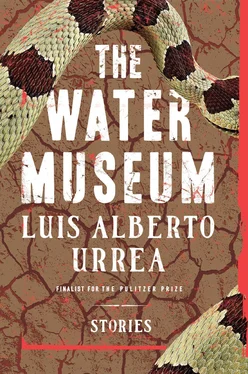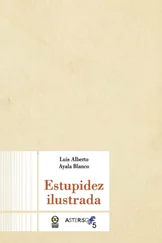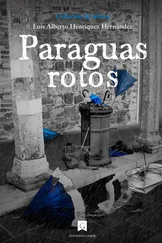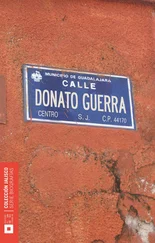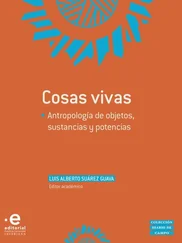“Don’t die now, you bastard,” García grunted as he peeked out through the bushes to see if their enemies had fled. “We have so much to do!”
But Guerrero only moaned and kicked his feet.
As night fell, Ángel García gathered wood. He peeled back the sullied bandages to let air and moonlight in. The ugly black cavern blown out of Guerrero’s head leaked slow and watery blood. His face was pale. His skin was cold. And still he drew breath and occasionally stirred and mumbled.
García lit a small fire and moved Guerrero nearer to the flames. He tore long strips from his friend’s shirt and rewrapped his head. Why waste a swallow of tequila on him? There was a bottle in his bedroll. He lifted it in a silent toast and drank.
He must have drifted off to sleep, for it was Casan’s whimpering that awoke him. The big dog had worked himself free from the rope, and he stood over the prone body of Guerrero and whined.
“What is it, boy?” García whispered.
Casan tilted his head and stared down at Guerrero. The dog yelped. Then he backed away.
García crawled over to Guerrero and said, “Arnulfo? Are you awake?”
The wounded man didn’t stir.
“What the hell is wrong with you?” García chided the dog. “Nothing here.”
Then he heard it too. The faint whistling. He inclined his head. There was a plaintive hooting coming from under Guerrero’s bandage. Were poor Guerrero’s sinuses blowing air out of his skull? Christ. What next? García pulled open the wrapping and was startled to see a small puff of smoke rising from out of his friend’s head. He crossed himself.
“Ah, cabrón!” he said.
The whistle again, then another puff of smoke. Casan barked. García sat beside the dog and stared. Then, was it? It couldn’t be! But — a light — a small light was coming out of the ragged hole in Guerrero’s head.
García bent down, but then had to leap back because a tiny locomotive rushed out of Guerrero’s wound. It fell out of the wound, pulling a coal car and several small cattle cars as if it were falling off a minuscule bridge in some rail disaster. The soft train fell upon the ground and glistened, puffing like a fish. Casan pounced on it and took it in his mouth, shaking it once and gulping it down.
“Bad dog!” said García.
But by then, Guerrero’s childhood home had squeezed out of his head. It was quite remarkable. The walls were soft and pink, and the furniture was veiny and tender. Casan ate the back porch. García, starving after the battle, skewered the couch, the bed, and the oven on a wire and roasted them over the fire. They tasted like pork.
Guerrero grunted once and a pile of schoolbooks plopped out.
Soon, García was appalled to see Guerrero’s parents and boyhood friends. Their cries were puny and heartrending when Casan ate them. And naked women! Good God! He didn’t know Guerrero had mounted so many naked women! He looked carefully — they came out in a parade of breasts and asses, small legs waving. He couldn’t bear it. He couldn’t bear his own lust and his own hunger, and he couldn’t bear Casan’s insatiable mouth, and he couldn’t bear his own loneliness. If he had tried to make love to them, he would have torn them apart.
All these small beings mewled and quickly expired.
It was the worst night of his life. He found himself praying that Guerrero would die. But he didn’t die. And García decided, finally, irrevocably, that he had to leave his friend to his fate. The damage to his own soul would be too great if he sat there any longer watching children, priests, grandmothers, goats, wagons, and toys ooze out of Guerrero’s bloody head and die on the ground. So he put the rope through Casan’s collar, and he tucked Guerrero’s pistol in his own belt, and he put Guerrero’s boots on his own feet, and he made his friend as comfortable as possible.
Birds gathered. First, crows. Then magpies and robins. Finally, gulls came from the coast. They seemed to be praying to Guerrero, for they bowed to him repeatedly. They stayed there and fed on his dreams until they were too heavy to fly.
Eleven. The Sous Chefs of Iogüa
Saturday. Lunch. Dexter Bower couldn’t find his red baseball cap anywhere and had to make do with the tan cap with a fish stitched to the front. That irked the crap out of him, but maybe that’s just what happens when you get old. Everything’s so damned irksome. Like the Mexican farmhands. They couldn’t say the name of the state if you paid them.
Dexter grunted. Of course, he was paying them. Those boys worked hard, worked as his momma used to say till their finger bones were poppin’. But they couldn’t say “Iowa” in schoolyard English and it came out like this: “Eee-uh-güey.”
Plenty of people, of course, still said “Ioway” and that didn’t bother him at all. That was traditional. That was English, for Godsakes.
He liked how they called him “Jefe,” though. He pronounced it “Heffy.” He hadn’t enjoyed school all that much, but they could have warned him that language would prove overtaxing.
“Iowa. See?”
He’d worked on it with a pencil stub and a sheet of notebook paper with his foreman, Juan. Juan was from someplace near Guadalajara. Tlaquepaque. How were you supposed to say that?
Juan smiled and shook his head and stared. Mexicans said lots of things with their smiles and head shakes. Mostly, Dex believed, they were saying, Don’t fire me, Jefe.
He’d finally compromised on the phonetics. He wrote the word out like this: IOGUA. Felt like a United Nations ambassador.
That was when Juan still worked for him. Bunked out in the workers’ shed. Now Juan had moved into town and opened a restaurant, and that’s where Dexter was headed. To see if Juan had taken any steps to heal the various damages done to Ioway by all this upheaval and displacement.
“Ee-uh-guey,” he muttered to himself, as he dragged himself into the F-150.
That lower back wasn’t doing nobody any good. He chuffed out a laugh. Who was he kidding? Ol’ Pedro, running the restaurant across the street from Juan’s — why, hell, everybody called that poor guy “Pee-dro.” It was all a new language around here now.
Like that clown on NPR said: The paradigm has shifted. Every American town is a border town now.
“Jesus.”
* * *
Dexter farmed 1,500 acres and leased another hundred-acre share to the east. Like everybody else, he had it divided between corn and soy. He ran a few handsome spotted cows on ten acres, selling off calves every year. And he was experimenting with sorghum and hay and things like that. Getting some nitrogen back into the soil.
So far he had managed to avoid using all that Monsanto demon seed — that bioengineered stuff that was half moray eel on the genetic level, or had spider blood in it instead of sap, or glowed with firefly juice in the kernels. Shit was what that was. Killing off all the goddamned bees. He could spit. He rolled down the window, took a breath, and went ahead and let fly.
“Bastards,” he said.
He kept his truck clean and his house tidy. She had always kept it neat, and he saw no reason to sully her memory with clutter or fuss. The porches were swept and the rockers sat there, jaunty in the sun, as if expecting herself to reappear at any moment and sit there reading one of her book club books. But she was gone now more than two years.
She had planted them a nice vegetable and herb garden, and when Juan still worked for him, he’d tended to the edibles — Juan was a wizard, all right. Dexter didn’t really care for kale or cabbage or cauliflower, which was too bad because Ol’ Juan brought it in by the gunnysack. Tomatoes, iceberg lettuce, cukes, squash, pumpkins. It was nice. Nice herbs, too — though Juan had snuck in all this Mexican stuff and Dexter was half-convinced there was marijuana in there somewhere. Cilantro? No thanks — tasted like soap.
Читать дальше
